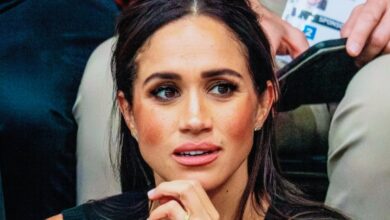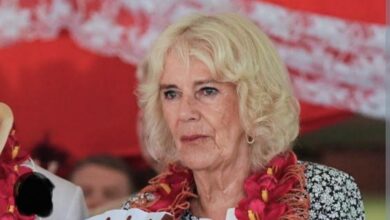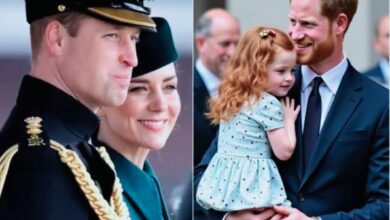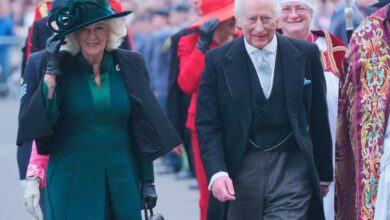Prince William and Harry asked King Charles never to marry Camilla and now the reason has been revealed

When King Charles III and Camilla Parker Bowles officially tied the knot on April 9, 2005, their wedding marked the end of a decades-long journey, and the beginning of a new chapter for the royal family.
But behind the smiles on the steps of St George’s Chapel in Windsor was a history of resistance, emotional complexity, and firm opposition from some of the people closest to the king.
According to Prince Harry’s 2023 memoir Spare, both he and his older brother Prince William made a heartfelt plea to their father during a private conversation, urging him not to marry Camilla.
“We support you,” we said. “We endorse Camilla,” we said. “Just please don’t marry her. Just be together, Pa,” Harry wrote in Spare.
Their request came after their first official meeting with Camilla in 1998-just one year after Princess Diana’s tragic death in Paris. The brothers expressed concerns that a royal wedding would reopen public wounds, especially given the press’s fixation on their late mother.
Harry later wrote, “It would incite the press. It would make the whole country, the whole world, talk about Mummy, compare Mummy and Camilla, and nobody wanted that. Least of all Camilla.”
Royal Roadblocks and Public Perception
The Prince of Wales’ path to marriage with Camilla wasn’t just fraught with family objections-it also faced institutional resistance. Queen Elizabeth II herself was originally against the union.
According to royal biographer Tom Bower, the late Queen once reportedly told Charles that she would “not condone his adultery, nor forgive Camilla for not leaving Charles alone to allow his marriage to recover.” She also allegedly referred to Camilla as “that wicked woman.”
Despite this, the Queen eventually softened her stance. By 2000, she attended a lunch with Charles and Camilla, signaling public acceptance of the relationship. While she skipped the civil ceremony in 2005, she did attend the religious blessing, a key moment in legitimizing the union within royal circles.
Camilla also faced harsh criticism from the public following the collapse of Charles and Diana’s marriage in 1992. She was vilified by many as the “other woman,” prompting Charles to enlist the help of spin doctor Mark Bolland to reshape public perception.
One of Bolland’s first strategic moves came in 1999, when Charles and Camilla were photographed leaving the Ritz Hotel together-an orchestrated moment known as “Operation Ritz.”
Harry alleged that Camilla’s efforts to win public favor came at a personal cost to him. He wrote that she played the “long game,” and accused her of leaking stories to the press that painted him in a negative light.
Nevertheless, the wedding went ahead in 2005. While it was postponed by a day to allow Charles to attend Pope John Paul II’s funeral, the ceremony was largely celebrated without controversy.
Queen Elizabeth even lightened the mood during her speech, joking about the event coinciding with the Grand National horse race.
From “Controversial” to Crowned
Despite earlier concerns, Camilla has since proven herself a vital and beloved member of the royal family. Queen Elizabeth II gave her full approval in 2022, expressing a wish that Camilla be known as “Queen Consort” when Charles took the throne.
Since Charles became King following his mother’s death in September 2022, Camilla has stepped into a central royal role.
Her public approval has grown steadily, reaching 55% in September 2022. And when King Charles was diagnosed with cancer in February 2024, Camilla increased her royal engagements significantly, further endearing herself to the public.
Meanwhile, Prince Harry, who stepped back from royal duties in 2020, has seen a decline in public support in the UK. In an unexpected twist, Camilla-once feared to be the cause of renewed royal controversy-now commands greater public approval than her royal stepson.
Two decades on, what was once a controversial romance has become a cornerstone of modern royal life. Camilla’s evolution from outsider to Queen is not just a personal triumph-it reflects the monarchy’s capacity to evolve and endure.



